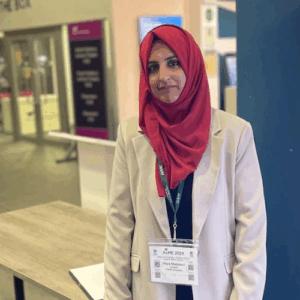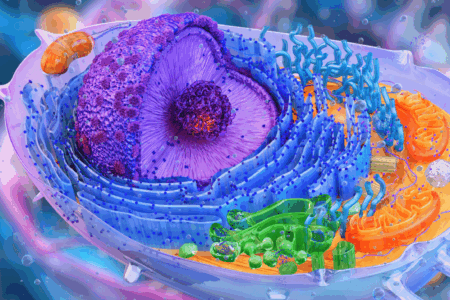
By Society member Aliya Maqsood
Aliya Maqsood worked as a research scholar in the molecular physiology lab at the Department of Physiology, University of Karachi, Pakistan. Her primary research interest was in molecular signalling pathways associated with Vitamin D receptor gene polymorphisms. Read her inspiring story on adaptability, empathy, and resilience when balancing family life and career choices.
In the sterile glow of the laboratory, surrounded by PCR tubes and machines, it might be hard to imagine that a lullaby once echoed in my mind while I waited for a centrifuge to spin. But that’s been my reality: navigating the precision of molecular physiology with the tenderness of motherhood, and the persistent pushback of a male-dominated field with unwavering purpose.
My journey began in a corner of the world where science, particularly at the molecular level, is still emerging, and where women in leadership roles in academia are few and far between. The odds weren’t exactly in my favour. Access to high-tech equipment was limited, mentorship was scarce, and balancing cultural expectations with ambition felt like walking barefoot on a shard-strewn path. But what I lacked in resources, I made up for in resolve.
My scientific growth took a pivotal turn in 2018 when I joined The Physiological Society. For the first time, I wasn’t just a lone voice trying to be heard, I was part of a community that valued diverse experiences. Through conferences, online and in-person workshops, and mentoring opportunities, I found knowledge, validation, and connection. For someone working in a resource-limited setting, the Society became a lifeline to global science, connecting me to world-class researchers, educational resources, and a platform to share my voice.
It was through this network that I discovered not just where physiology was headed, but also where I could meaningfully contribute. The encouragement and recognition I received helped shape me into a more confident, informed, and connected molecular physiologist. The Society didn’t just enhance my research capabilities, it affirmed my belonging in the broader scientific conversation. It also gave me the platform to speak up about the unique challenges women face in physiology, especially those of us from resource-constrained settings.
Choosing a career in physiology wasn’t simply a professional decision, it was a personal mission. I have always been awe-struck by the intricate design and exquisite craftsmanship of the human body, from the visible elegance of the skin to the complex, hidden pathways of nuclear signalling. I was drawn to the elegance of the human body at the cellular and molecular level, and I wanted to be part of that exploration. But as a young woman, my ambitions were often met with scepticism. I heard things like, “Isn’t research too demanding for someone who wants a family?” or “Teaching only might be more suitable.”
Then came motherhood, a beautiful, transformative chapter that demanded its own kind of excellence. Sleepless nights, childcare dilemmas, and the emotional labour of raising a child became part of my daily rhythm alongside research deadlines and academic duties. I’ve pipetted with a constant thought of my child and reviewed manuscripts while soothing a feverish toddler. There were moments I felt torn between two worlds, but I eventually realised that both identities, scientist and mother, were not at odds; they were symbiotic. Each made me better at the other.
Being an educator added yet another layer of meaning. I saw reflections of my early struggles in lecture halls filled with aspiring minds. I wanted to be more than just a teacher, I aspired to be a mentor, especially to young women who doubted if they could truly belong in science. I told them that intelligence is not bound by gender, and that success doesn’t require sacrificing family or femininity. It makes me even more grounded and contented when, even after years of graduation, my students still message and seek suggestions before making any life/career choices. It gives me immense joy realising that my impact was not bound to the subject and has gone beyond the classroom.
Becoming a molecular physiologist in such an environment wasn’t only about the technical skills, it was about adaptability, empathy, and resilience. It taught me to think creatively when labs lacked supplies, to advocate for my students, and to prioritise mentorship as much as metrics. Today, I don’t just analyse genes or teach pathways, I build bridges between personal purpose and professional pursuit.
I’ve come to redefine what success looks like. It’s not just publications or promotions. It’s the young woman who stayed back after class to say, “I didn’t know someone like me could do this too.” It’s the student who emails years later, saying they chose research because I made it feel accessible. And it’s the little hand that tugs at my lab coat and says, “Mama, I also want to be a scientist.”
To every woman in science, especially those balancing beakers with baby bottles, know that your story matters. You don’t have to choose between ambition and affection, between lab coats and lullabies. You can own both. And sometimes, the quiet strength of showing up every day, in every role, is the most powerful data point of all. Happy Physiology!

